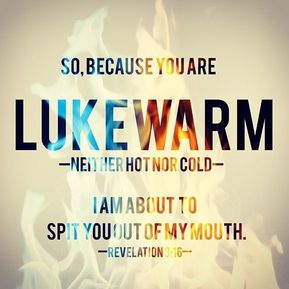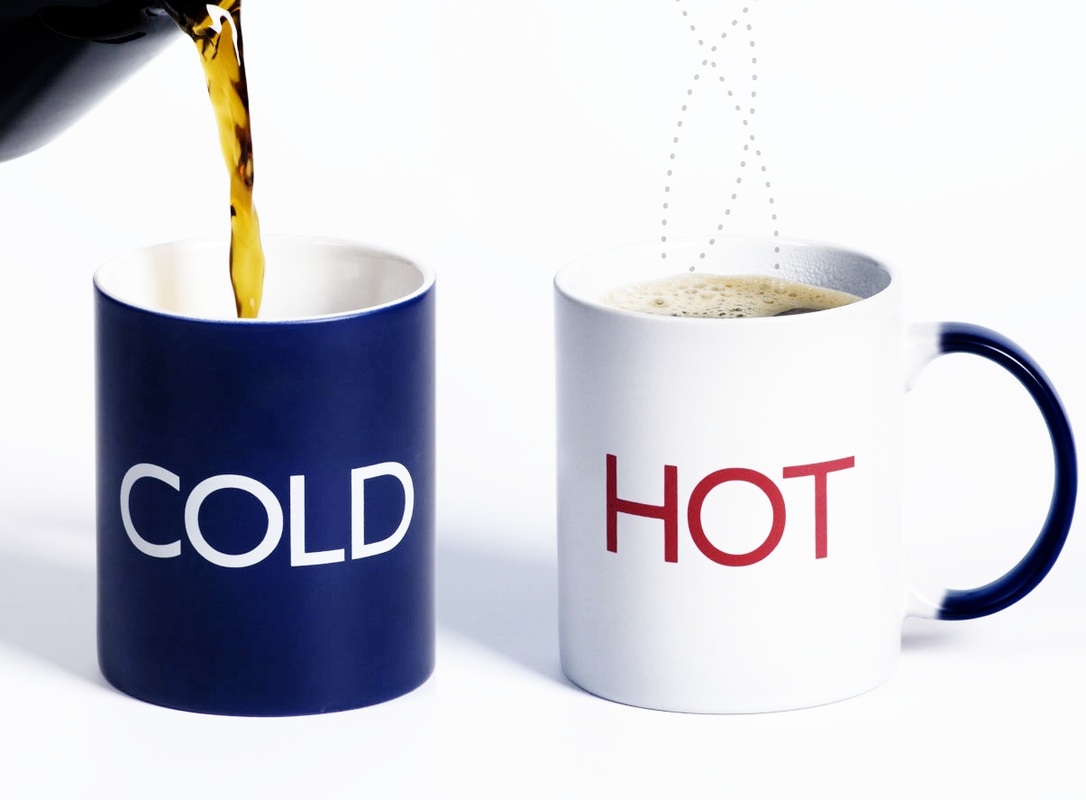
A question that should push us all to study more carefully is: Are we mistaking the echo of our own assumptions for the meaning of God's Word?
If you haven't read it yet, Reenacting the Way (of Jesus) unwraps the commonly misunderstood messages of the Gospels. Jesus' healing miracles, turning water into wine, feeding the 5,000 and calming a storm all lose their meaning when we reduce them to miraculous moments that revealed Jesus' divinity. They had very specific meanings for their original audience not just some generic meaning for everyone.
The same miscommunication happens when we chase the futuristic relevance of the book of Revelation rather than the reason John recorded it for his ancient audience. We miss Jesus' personalized message for his first century audience in Asia Minor. Let’s stop doing this. Flattening the Bible's first meaning loosens the anchor that holds it from floating down the river of your imagination.
So let's talk about a specific example: being lukewarm. In the popular passage of Revelation 3:15-16, Jesus says, “I wish you were cold or hot, but because you are lukewarm, and neither hot nor cold, I will vomit you out of my mouth.” Why does Jesus want people made of extreme temperatures, like hot or cold, or else he will discard them?

The common sermon created from Revelation 3:15-16 is: Jesus wants you to be for him or against him, but not sitting on the fence. In other words, you need to make a decision about where your loyalties lie. The assumption is made that "hot" and "cold" are metaphors for a passionate commitment to or against Jesus. That makes sense to us. "Hot" and "cold" are often used to represent feelings toward something.
But is that what people who lived in 1st Century Laodicea thought about "hot" and "cold"?
To understand Revelation 3:15-16, we have to understand John's audience (same is true for understanding the meaning of any Bible passage). John recorded his visions in the book of Revelation as a message for seven communities in the Roman province of Asia (think present-day Western Turkey). Chapters 2-3 provide specific messages from Jesus in the form of 7 ancient Roman imperial edicts to remind each community to obey Jesus not Rome. The imperial format implies Jesus is Lord not Caesar. The seventh edict in Revelation 2-3 is written to the final city along the route a courier would take to deliver John’s apocalypse: Laodicea.
The city rests on the hills south of the Lycus River valley opposite the city of Hierapolis on the north side. The Lycus River valley offered fertile soil to support a large agrarian population. The population of Laodicean may have reached over 150,000 people at its height based on the size of the theater ruins. The city had all the trimmings of a boomtown in the Roman period with giant bathhouses, a stadium, and a theater.
Laodicea was wealthy. Multiple industries fueled economic prosperity. The textile industry fueled the economy with significant export revenue coming from black wool products weaved so finely as to be rainproof. The commercial activity had made local banking centers noteworthy since the time of Cicero (~50 BC). A noted medical school at the temple of the Carian god, Men, produced eye ointment from local stone in the region. Doctors would shave off the outer layers of the rocks, grind them into a fine dust, and then submerge them into mineral water rich in calcium carbonate. The resulting eye ointment would then be applied to the outside of the eyes to clear up infection. The textiles, banking and medical ointments made Laodicea an independent economic powerhouse.
After a major earthquake in 60 AD, Laodicea refused Nero’s offer to subsidize their rebuilding efforts. The Roman historian Tacitus writes: “Laodicea, one of the famous Asiatic cities, was laid in ruins by an earthquake but recovered by its own resources without assistance from ourselves” (Annals 14:27).
The message from Jesus in Revelation 3:17-18 directly challenges Laodicea’s reliance on its wealth: “Because you say, ‘I am rich and have become wealthy and have need of nothing,’ and you do not know that you are wretched and miserable and poor and blind and naked, I advise you to buy from Me gold refined by fire so that you may become rich, and white garments so that you may clothe yourself… and eye salve to anoint your eyes so that you may see.” Do you see what Jesus is doing? Jesus essentially said every great thing in Laodicea is worthless since they valued worldly wealth rather than obeying the words of Jesus. He actually had what was truly valuable.
Jesus made a similar allusion to life in Laodicea when he talks about hot, cold, and lukewarm people.
The large population and extensive textile industry in Laodicea required an ample water supply. The three major cities around the valley, Laodicea, Colossae, and Hierapolis, all had distinct water sources.
- Laodicea piped water from the mountains to the south. After 6 miles in an aqueduct, the water arrived lukewarm with a gritty concentration of calcium carbonate.
- Colossae was tucked into the foot of Mount Honaz where cold mountain run-off water poured down to supply the city with fresh water.
- Hierapolis was positioned on magnificent hot springs that emitted mineral rich waters attracting visitors from all over Asia to its therapeutic baths.
Do you see how this local dynamic reveals the meaning of Jesus’ message to Laodicea? Jesus uses their water supply as a spiritual metaphor. “I know your deeds, that you are neither cold nor hot; I wish that you were cold or hot. So because you are lukewarm, and neither hot nor cold, I will vomit you out of My mouth” (Revelation 3:15-16).
Colossae’s cold, fresh mountain water and Hierapolis’s medicinal hot springs outclassed Laodicea’s lukewarm water supply that made people vomit after drinking. Cold water and hot water sources had great personal value. Laodicea's lukewarm water had the same personal value that complacent members of the Laodicean church had to the cause of Christ. Not much.
Revelation 3:15-16 doesn't teach that Jesus prefers people to hate him or love him, just don't "sit on the fence." Jesus doesn't want anybody to hate him. That common teaching from this passage is not only crazy when you stop and think about it; it's bad Bible interpretation. Jesus isn't saying, "any decision is better than indecision." Jesus is telling us to serve a purpose. Hot water could heal. Cold water could refresh. We should bring a similar blessing to people around us.
We were meant to serve him. Our actions were meant to embody his values and contribute to his redemptive mission. When we just live for ourselves like the lukewarm water that contributed to the wealth engine of the Laodicean textile industry, we are useless. We lose our purpose while serving ourselves.
Jesus is calling us to be hot or to be cold, to embrace our redemptive role in his mission. How are you doing it? I'm trying to make my life and my words "cold" for Jesus, refreshing the souls of those lost in a self-reliant rat race.







 RSS Feed
RSS Feed
